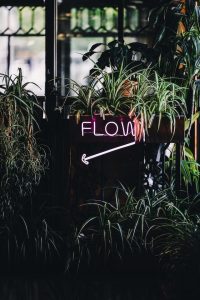You can’t live your whole life in crisis mode, even when you are actually in the middle of half a dozen personal and political crises. It’ll give you a psychological disorder, if you don’t already have one. It’s horrible for your physical health, so it will just make another burden for you in the future. We have to take breaks or we’ll grind ourselves to death.
So I’ve been thinking about how to take breaks in a way that doesn’t make me feel guilty. I’m not talking about holidays, but about daily self-care which lets me continue to deal with shit and maybe even find fulfillment. But to take a break from my vague Cluster A issues or family drama or work or the climate crisis or the rising tide of fascism means I have to deliberately put my mind onto something else or else I’ll just drift back to one of those problems. I have to distract myself.
Distraction is usually framed as a personal weakness, one which can be exploited by capitalism or fascists. But without our ability to be distracted from our current task we’d never observe signals of danger like screeching tyres, smoke on the horizon, the 45th president of the USA, etc. It’s a feature of the brain, not a bug. It can absolutely be exploited for bad stuff, but it evolved as a survival instinct. What if we expanded our idea of “survival” here?

We could actively use distraction as a form of self-care, instead of just letting it happen accidentally then kicking ourselves for being weak. We could take refreshing breaks which build our physical and mental health, instead of reading yet another “look at this arsehole” post on the internet.
I don’t have any scientific basis for claiming that distraction can be a form of self-care. It’s just an opinion I’m forming lately. Things which have contributed to that opinion:
- learning about flow states, and the positive effects they have on us
- Jenny Odell’s book How To Do Nothing, which I think is going to turn out to be a touchstone for me for a long time
- Oliver Burkeman’s book Four Thousand Weeks, on attention and distraction
- I haven’t read Audre Lorde yet, but have seen so many references to her work on self-care as an act of political resistance that I’ve added it to my to-read list
So if we want to use distraction as one form of self-care, how would that work? Here’s the how-to instructions I’ve come up with for myself:
- Make a conscious choice to distract yourself from your worries and burdens. Plan ahead for it, like “on Sunday afternoon after lunch, I’m going to take a break until it’s time to call Greg”. Look forward to it with anticipation.
- Choose a distraction which is actually refreshing. Doomscrolling is easy and is often a genuine break because it can put you in a flow state. But you’re just replacing one worry with another worry, so it doesn’t count as self-care. Action movies, silly match-3 games, playing with your dogs or watching home renovation shows are going to give you more rest and relaxation.
- If you can, choose a distraction which enriches your life. For me, that’s reading, crafting and art. Spending time with my own or other people’s creativity makes my life better in so many ways, and I feel replenished, not just rested. Nature bathing is also great, a way of re-finding your place within the ecosystem and the perspective that brings.
At the very least, I think intentional distraction is better than accidental distraction. We’ll see if it works as self-care though.